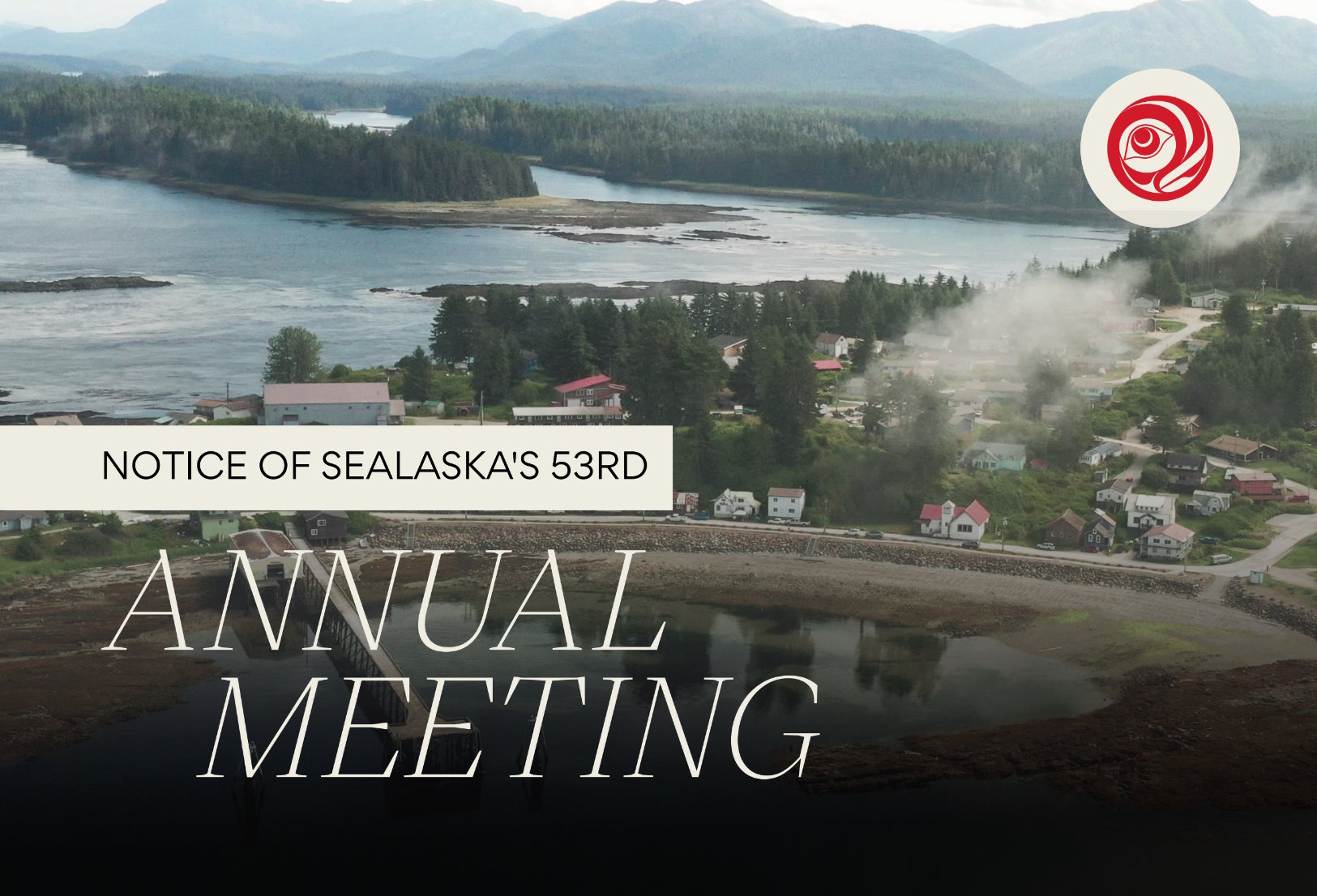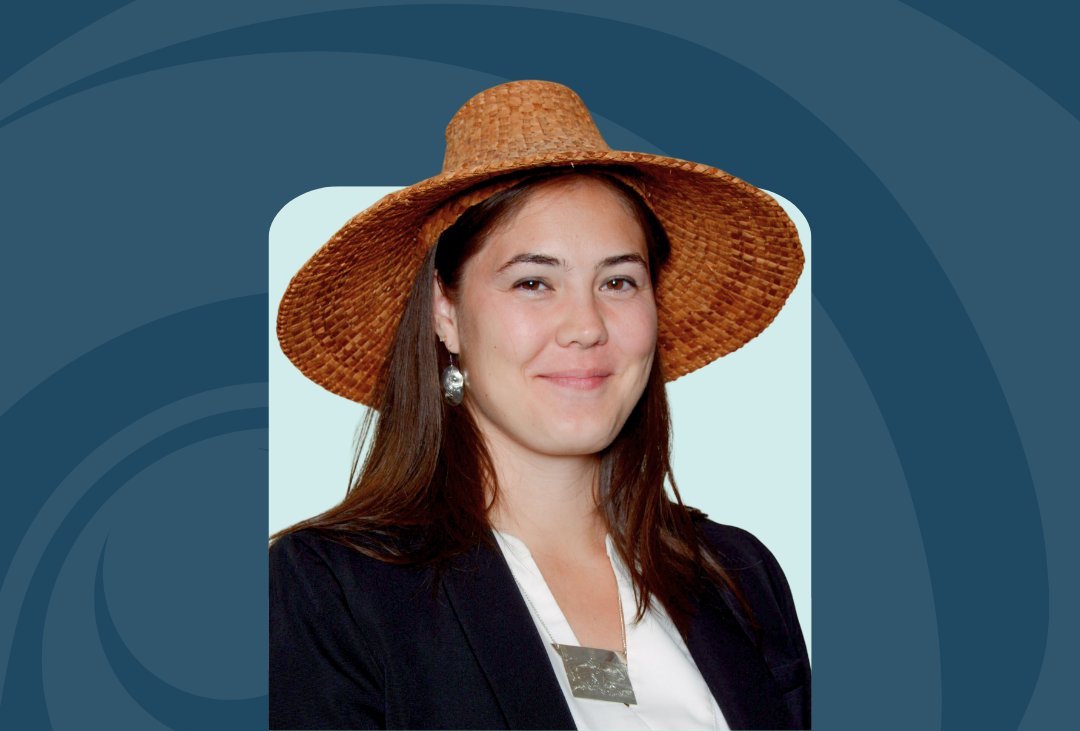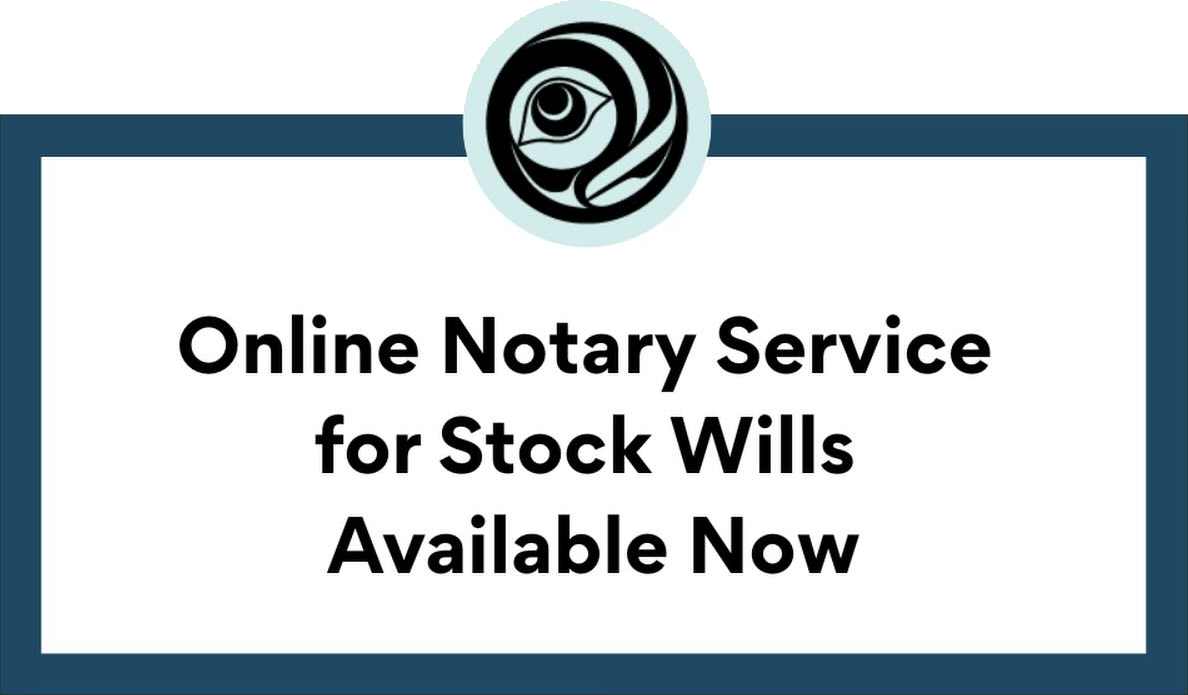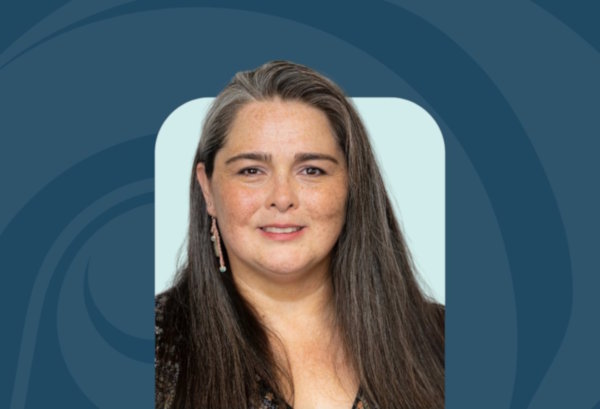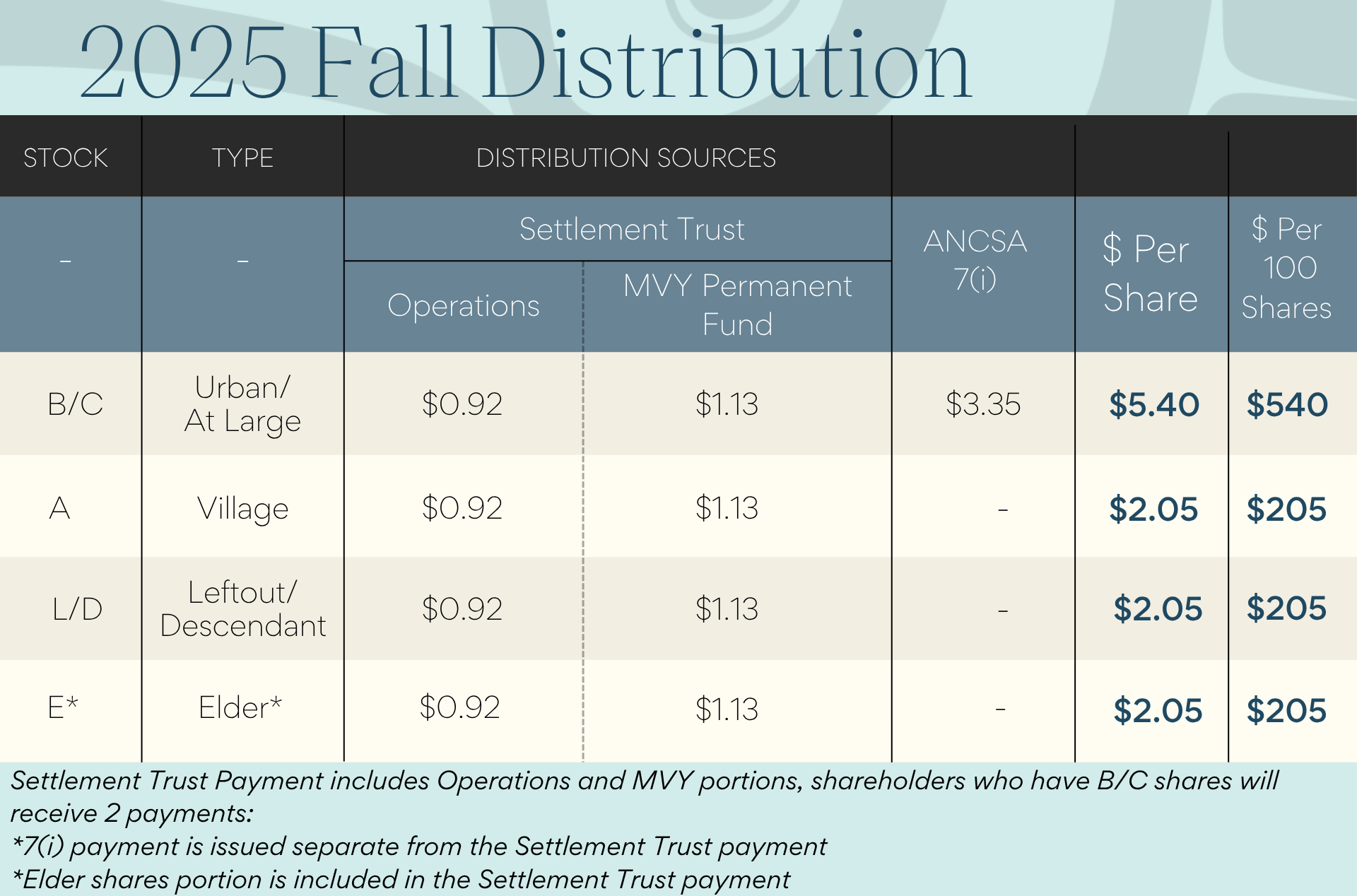Sealaska Joins Partners in Announcing New Funding Source for Community Economic Development in Southeast
Wednesday, September 15, 2021

Today, Sealaska joins with several other organizations committed to the long-term health and success of our region in announcing a new vision and funding model for community economic development in Southeast Alaska.
Sealaska is proud to commit $10 million to the establishment of the Seacoast Trust. Our $10 million is being matched with $7 million from The Nature Conservancy, and our ultimate goal is to see this fund grow to approximately $100 million.
The trust will provide strong financial footing to the Sustainable Southeast Partnership, a group in which Sealaska has been heavily involved for nearly a decade. The trust will financially support the ongoing work of the SSP, a robust and engaged network of individuals and organizations working to strengthen cultural, ecological and economic resilience across Southeast Alaska.
“The Seacoast Trust achieves the priorities of our shareholders, who care deeply for the economic sustainability of our traditional communities, where we all come from,” said Sealaska President and CEO Anthony Mallott. “It is also an avenue for advocating for Native rights and issues, ensuring that our values and traditional knowledge are part of the management plan for the lands and waters that make up our ancestral homelands.”
The Work of SSP
SSP is supporting community-led initiatives to move the region away from ongoing cycles of a boom-and-bust economy that limit the long-term potential of our traditional villages and the region as a whole. The Seacoast Trust will support a range of programs weaving Indigenous values into new approaches for resource management, ecological revitalization and economic development. SSP has been the force behind dozens of impactful programs already underway in our region, including:
- Alaskan Youth Stewards – This program, which is also known as TRAYLS (Training Rural Alaska Youth Leaders and Students) and Youth Conservation Corps (YCC) depending on the community, has built trails, restored graves, harvested and distributed traditional foods, conducted scientific monitoring and many other community-driven activities. The program started in 2017 and has been held in Hoonah, Kake and on Prince of Wales Island. Youth participants receive summer employment and STEM skills training in locally relevant jobs while serving their communities. SSP connects the partners in the program, which include local tribes, the U.S. Forest Service and Sealaska.
- Regional food distributions – SSP was the reason Sealaska was able to quickly mobilize and partner with the Alaska Longline Fisheries Association last summer to distribute 49,000 pounds of salmon to communities throughout Southeast struggling due to the pandemic and poor salmon returns. SSP was also critical to a local food distribution program in Sitka during the summer of 2020 to ensure local children had access to nutritious food during the pandemic.
- Yakutat affordable housing – SSP brought together the City and Borough of Yakutat, Yakutat Tlingit Tribe, Tlingit & Haida Regional Housing Authority, Alaska Housing Finance Corporation, Bank2 and Sitka Construction Services to build $2.8 million in new, high-quality affordable housing in Yakutat, helping to attract young skilled workers to the community and maintain the student population in the public schools needed to ensure adequate funding for all.
The Return on Investment
More important than any of these individual efforts (and there are dozens and dozens more stories just like these), the money spent impacts communities in our region in a number of ways:
- For each dollar spent in the region through SSP’s work, there is a multiplier effect of 7:1. (Source: Ecotrust, 2018)
- Within two years, we expect returns on this initial funding for Seacoast Trust to be generating $1 million in support for SSP, which will equate to approximately $7 million in annual impact across the region.
- As our success grows and SSP is able to expand to additional communities, we expect our demonstrated social and financial impact to attract more and more support from funders that will help us reach our ultimate $100 million goal.
The establishment of the Seacoast Trust comes as the region marks the transition away from large-scale, old-growth timber harvesting. In January 2021, Sealaska, the region’s largest private landowner, announced it would transition out of the logging industry this year. In July 2021, the U.S. Department of Agriculture pledged protection for 9 million acres of old-growth forest in the Tongass National Forest, a $25 million commitment to Indigenous- and community-led conservation, and support for a future of environmentally sustainable economic development.
“Transitioning our communities to take advantage of sustainable economic opportunities will require support from many partners,” said Mallott. “We must ensure that what comes next is stable, regenerative and offers just outcomes to communities who have faced economic crises for decades. We are searching for economic and environmental balance that can come from a focus on collaboration, inclusive growth, social justice and indigenous stewardship.”
The Seacoast Trust will provide annual funding to support communities and meet the partnership’s goals for indigenous stewardship and community prosperity. The Trust will support a range of programs including efforts to restore and sustain salmon runs, manage healthy forests, establish new forest carbon projects, teach and inspire youth, increase food security and grow prosperous local economies. Through existing and expanded community forest partnerships and other ventures, the region will see new opportunities to strengthen local and tribal decision-making authority in the management and conservation of local resources.
Governance
Oversight for the Seacoast Trust will be housed within Spruce Root, a Juneau-based nonprofit established with $500,000 in seed money from Sealaska in 2012. Spruce Root provides entrepreneurs with access to business development and financial resources. The existing Sustainable Southeast Partnership Steering Committee will establish program strategy and set priorities for the trust, make funding recommendations and review program budgets. The Spruce Root Board of Directors will hold fiduciary responsibility for the Seacoast Trust, establish investment and financial return objectives and review funding recommendations made by the SSP Steering Committee.
Our Partners
Today, Sustainable Southeast Partnership is composed of the following partners and organizations.
- Alaska Conservation Foundation
- Alaska Venture Fund
- Allen Marine
- Audubon Alaska
- Central Council of the Tlingit & Haida Indian Tribes of Alaska
- Ecotrust
- First Alaskans Institute
- Hoonah Indian Association
- Klawock Cooperative Association
- Organized Village of Kake
- Organized Village of Kasaan
- Rasmuson Foundation
- Renewable Energy Alaska Project
- Sealaska
- Sitka Conservation Society
- Sitka Tribe of Alaska
- The Nature Conservancy
Get Involved
If you’d like to get involved as an individual or on behalf of your tribe, community or other organization, please contact SSP Program Director Ralph Wolfe.
Latest News
Notice of Sealaska's 53rd Annual Meeting of Shareholders
Pinned - Posted 2/12/2026The 2026 Sealaska Annual Meeting of Shareholders will be held on Saturday, June 27, in Angoon, Alaska. This year’s meeting will take place at the Angoon Elementary Gym, located at 500 Big Dog Salmon Road, Angoon, AK 99820.
Sealaska Welcomes Madeline Soboleff Levy
Posted 2/7/2026Sealaska welcomes Madeline Soboleff Levy as our new Vice President of Policy and Corporate Affairs.
Online Notary Service for Stock Wills
Posted 1/28/2026Sealaska is pleased to welcome Heather Shá xat k’ei Gurko
Posted 12/17/2025Sealaska is pleased to welcome Heather Shá xat k’ei Gurko as our new Director of Shareholder Communications.
